
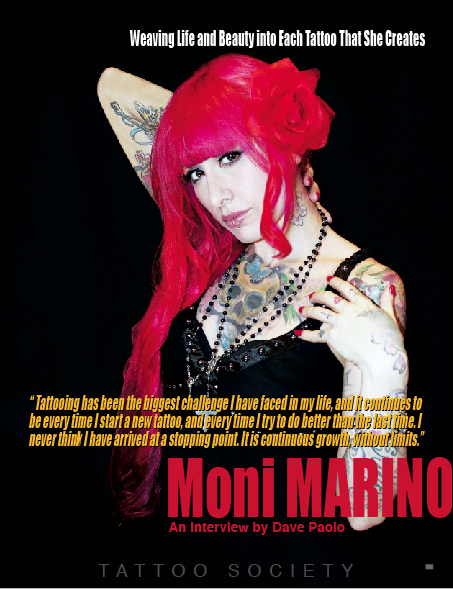
Dave: Hello, Moni. Can you tell me a bit about yourself?
Moni: Hello, David. As you know, my name is Moni Marino. I’m Italian, of Sicilian origins, and have been tattooing for more than 20 years. I am the daughter of a painter and a seamstress, and I studied in a technical institute. As a child, I was constantly smeared with oil paint colors. I drew and painted with my hands and feet, and sometimes even licked the tubes of paint.
I admired my father, who would paint for hours, and I was totally fascinated and in love with the brushes. At the age of 14, I saw a tattoo magazine for the first time and something in my brain, and in my heart, clicked. At that moment, I knew that I wanted to become a tattoo artist. At the age of 15, I started tattooing my first boyfriend and all of his friends in the small town where I lived. The word spread quickly and many people were bothered and approached me about it, which made me very sad. So after I finished studying, I left Italy and my family. I went to the train station and without any money or a planned destination, I ran away from all the people who had prejudices against me and I separated from my parents…
Moni: (continued) Fourteen hours later I was in Berlin. After a week of survival on the road, without money and without knowing a word of German, I finally met an Italian family who took me with them to the other side of Germany, and I began to work in a pizzeria and learn the German language. It took me four years to save up enough money to buy a new tattoo machine, ink, and needles for tattooing…and I began to be happy again.
Dave: Being a female tattoo artist, has it been easy or hard in this male-dominated business?
Moni: Yes, that’s right; there have been very few women in the tattoo business in the past. Honestly, it has not been easy to be accepted. It’s been a long and difficult process that was full of obstacles and discrimination. I think that both my tenacity and my ability to be humble have made my success possible. Today, I am happy and proud to see how many other talented women are dedicated to this business.
Dave: Where do you live now?
Moni: I live in Germany. On the 14th of February I opened my new tattoo shop called the “Black Barock.” It is located in Essen, a nice city that is 30 minutes from Düsseldorf.
Dave: Can you tell me more about your new tattoo shop?
Moni: Until now, I have worked as a guest artist in other tattoo studios. During the last four years I traveled around the world a lot and I experienced so much, drawing inspiration from other countries and cultures. Last summer I felt like I was ready to open my own shop. It took five months to create it, but now it’s wonderful, and it is how I always dreamed that owning a shop would be. It is big, black, and decorated in the baroque style.
The “Black Barock” consists of a tattoo studio, an art gallery, and a clothing store. I am also giving tattoo seminars and fine art workshops there. I’m really honored to run and own my own shop. I want to thank my friends, my family, and my fans; they always inspire me to keep going and keep developing new ideas.
Dave: Who was the most inspiring person for you in the very beginning?
Moni: It was definitely my father.
Dave: It seems to me that a lot of younger tattoo artists have college degrees in the fine arts. The things that they can do on the skin are outstanding. Do you think it is necessary for a tattooer to have a background in fine arts or any formal training?
Moni: It is amazing when they do, but I do not think that it is necessary. You must have art in your blood. That’s not something that you can learn in school.
Moni: Black and coral red.
Dave: Which subjects do you prefer?
Moni: Venetian masks, as well as children’s and women’s portraits. I like to create the gentle look in their eyes, where I can bring their souls to life. I try to give the portrait a sense of life.
Dave: What is your favorite aspect about your job?
Moni: That I get to travel around the world and make people happy.
Dave: Are there any famous artists who have influenced the direction of your career?
Moni: I admire many tattoo artists; for example, Steve Soto and Carlos Torres.
Dave: What would your job be if you were not a tattoo artist?


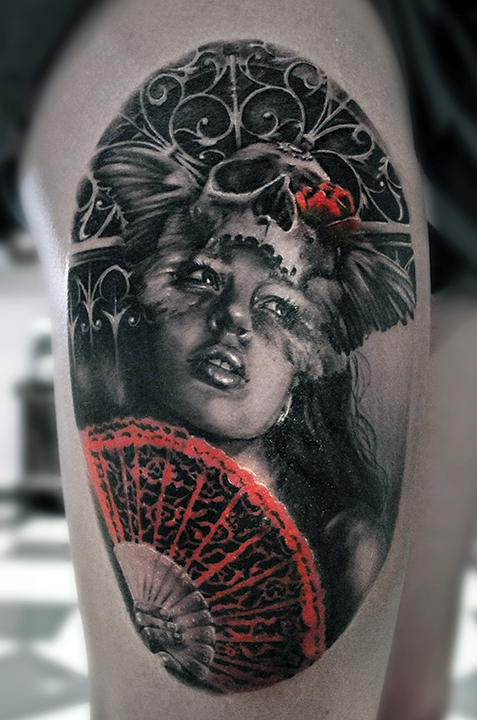
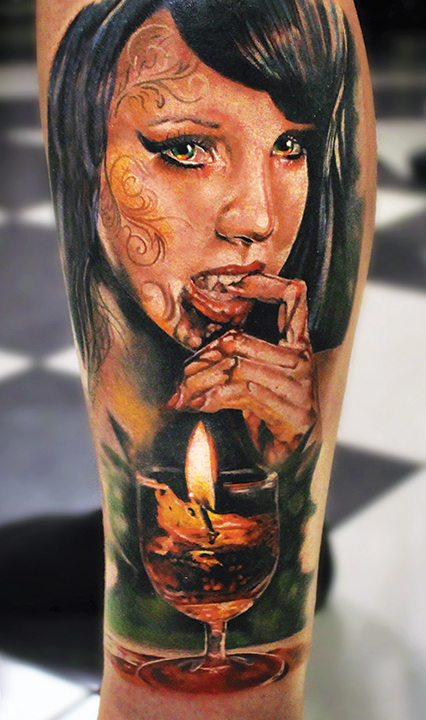



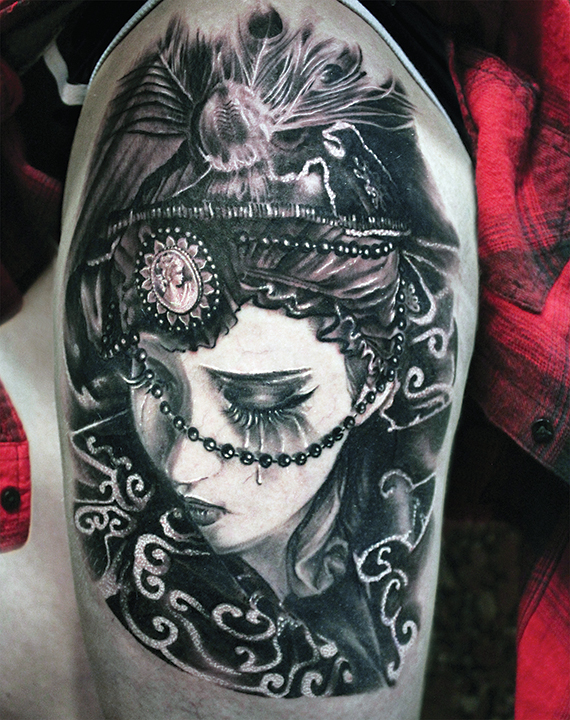
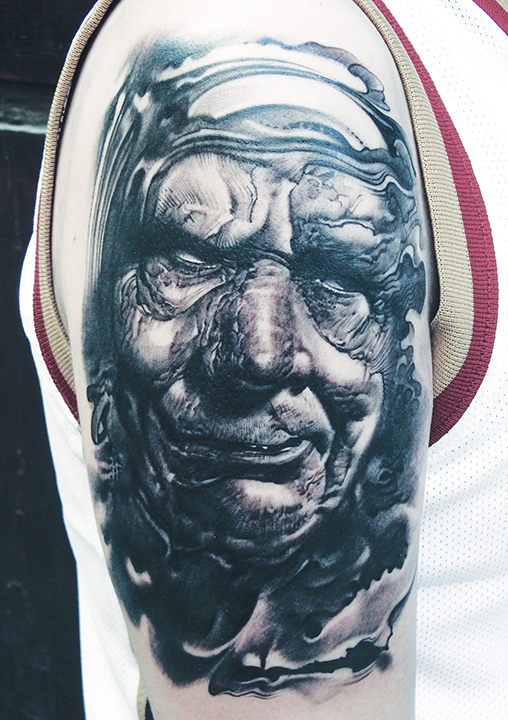
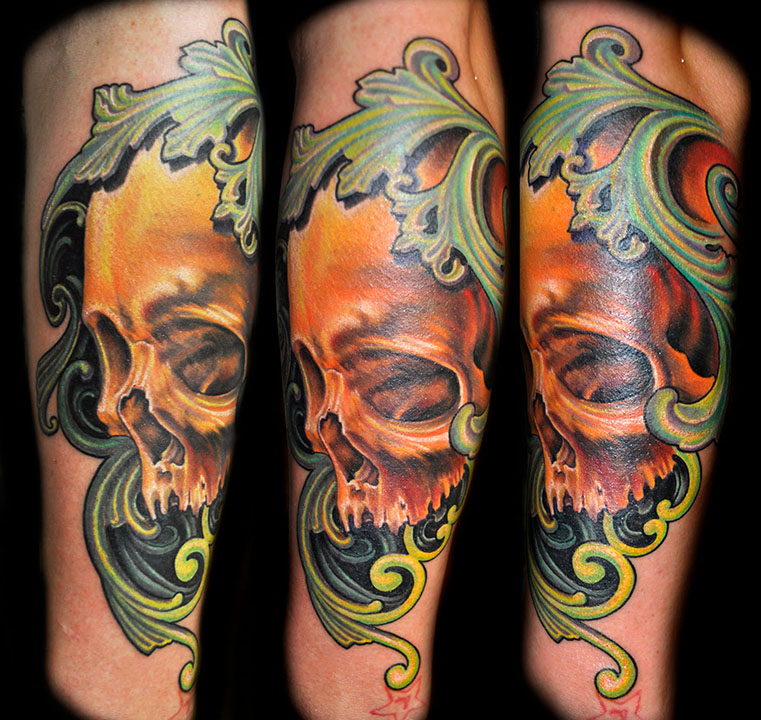
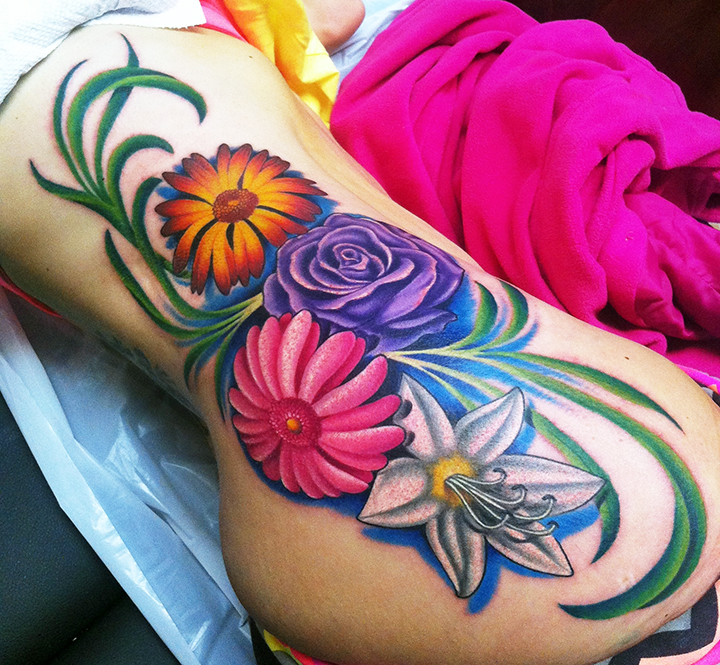
Leave a Comment